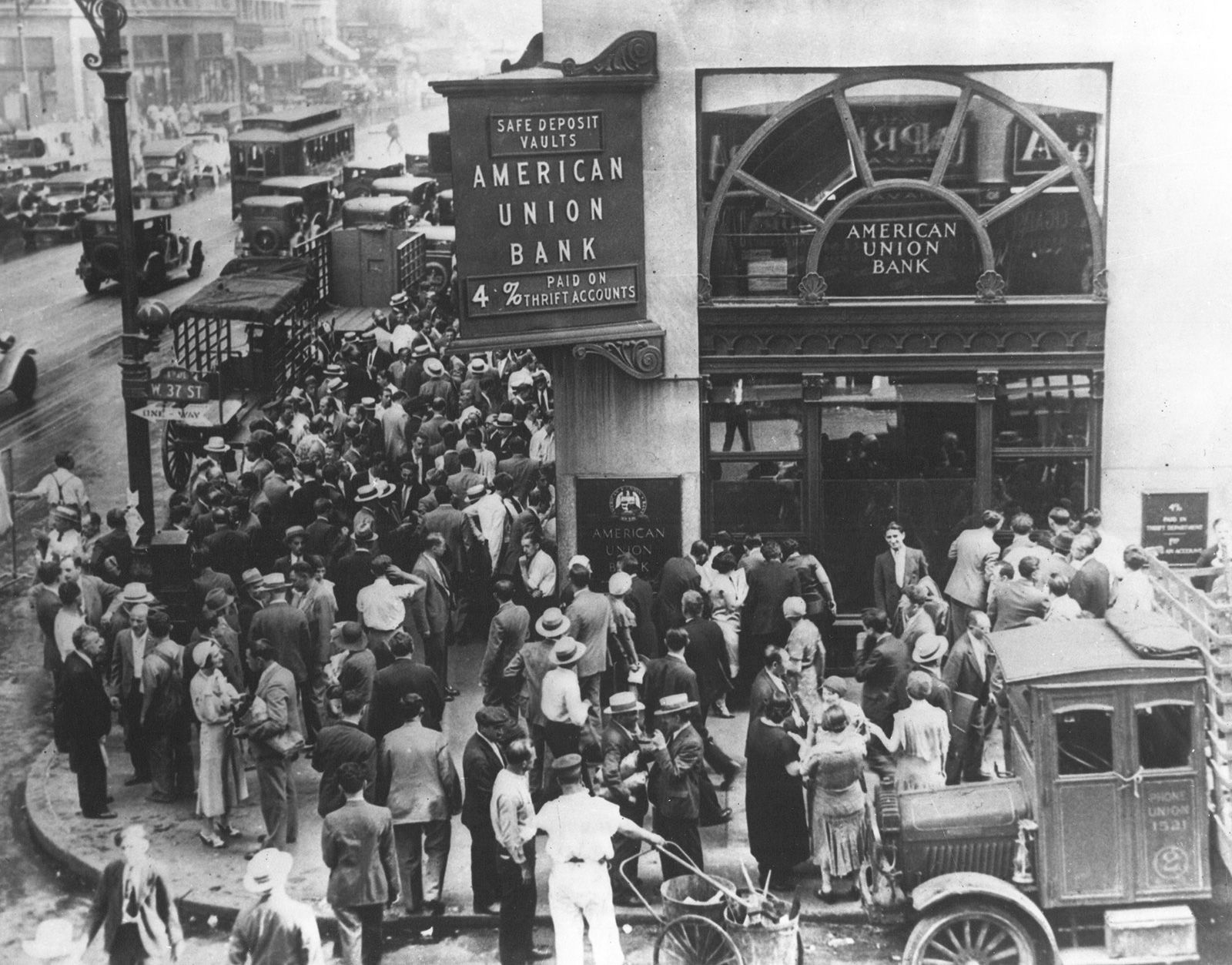The Great Depression was a severe worldwide economic downturn that lasted throughout the 1930s. It was caused by a combination of various factors and had far-reaching consequences that shaped the course of history.

Credit: slideplayer.com
Causes of the Great Depression
Several factors contributed to the onset and severity of the Great Depression:
- Stock Market Crash: The stock market crash of 1929, known as Black Tuesday, saw the value of stocks plummet, leading to massive losses for investors and a collapse of confidence in the market.
- Bank Failures: The failure of numerous banks due to risky loans and lack of financial regulation led to a contraction in the money supply, further exacerbating the economic crisis.
- Protectionist Trade Policies: The implementation of protectionist trade policies, such as high tariffs like the Smoot-Hawley Tariff Act, resulted in a reduction of international trade and exacerbated the economic downturn.
- Overproduction and Underconsumption: Industrial overproduction led to excess inventories, while many consumers lacked the purchasing power to buy the goods, leading to a cyclical slowdown in production and employment.
- Decline in Agricultural Prices: Agricultural prices fell sharply during the 1920s, leading to widespread farm foreclosures and financial distress, particularly in rural areas.
Consequences of the Great Depression
The Great Depression had profound and enduring consequences, both domestically and internationally:
- Unemployment and Poverty: The unemployment rate soared to unprecedented levels, reaching over 25% in some countries, leading to widespread poverty and hardship for millions of people.
- Political Instability: The economic crisis fueled political unrest and the rise of radical ideologies, leading to social and political upheaval in various countries.
- Global Economic Collapse: The Great Depression led to a worldwide economic downturn, with international trade and industrial production contracting sharply, further deepening the crisis.
- New Deal Programs: In response to the crisis, governments implemented extensive social and economic reforms, such as President Franklin D. Roosevelt’s New Deal programs in the United States, aimed at providing relief, recovery, and reform.
- Legacy of Regulation: The Great Depression led to reforms in financial regulation and the establishment of social safety nets to protect against future economic downturns.
:max_bytes(150000):strip_icc()/great_depression.asp-Final-8258581e56b6472fb8e1f12c3766187e.jpg)
Credit: www.investopedia.com
Frequently Asked Questions For Analyze The Causes And Consequences Of The Great Depression.
Q: What Were The Causes Of The Great Depression?
The causes of the Great Depression can be attributed to the stock market crash of 1929, weak banking systems, high tariffs, overproduction, unequal distribution of wealth, and agricultural decline.
Q: How Did The Stock Market Crash Contribute To The Great Depression?
The stock market crash of 1929 led to a significant decline in stock prices, causing many investors to lose their money, leading to a decrease in consumer spending and investment, which ultimately triggered the Great Depression.
Q: What Role Did Weak Banking Systems Play In The Great Depression?
Weak banking systems during the Great Depression resulted in numerous bank failures and a loss of people’s savings, causing a significant reduction in consumer spending and exacerbating the economic crisis.
Q: How Did High Tariffs Worsen The Great Depression?
High tariffs imposed during the Great Depression led to a decrease in international trade, causing a decline in exports and ultimately leading to an economic slowdown in various industries.
Conclusion
In conclusion, the Great Depression was a complex and multifaceted economic crisis that had deep-seated causes and far-reaching consequences. It reshaped economic policies, social structures, and international relations, leaving a lasting imprint on the course of history.
Guest Author Sakhawat-Shuvo wrote and edited this Article based on his best knowledge and understanding. These opinions and remarks are not endorsed or guaranteed by epichistoria.com or EpicHistoria. The Epic Historia does not guarantee this article’s content. Readers should verify and use their judgment before trusting the content. Also, the Images used in this Article are the copyright of their Respective Owners. Please use our Comment Box or Contact Us form to report this content. This information is not accountable for losses, injuries, or damages.

